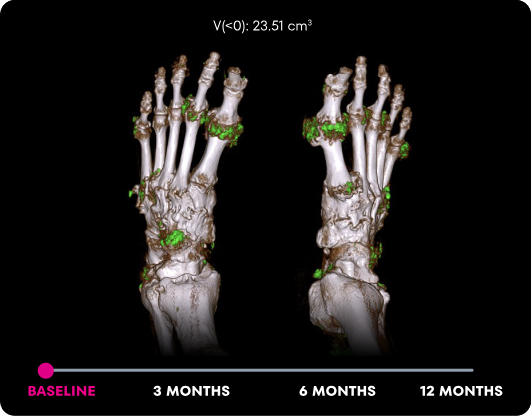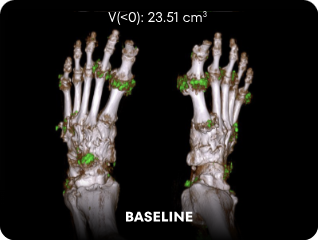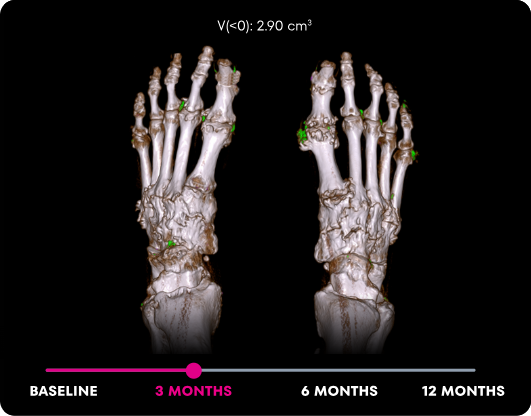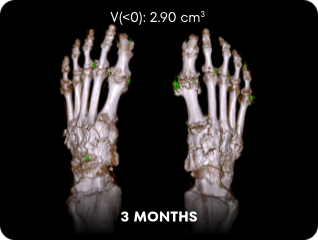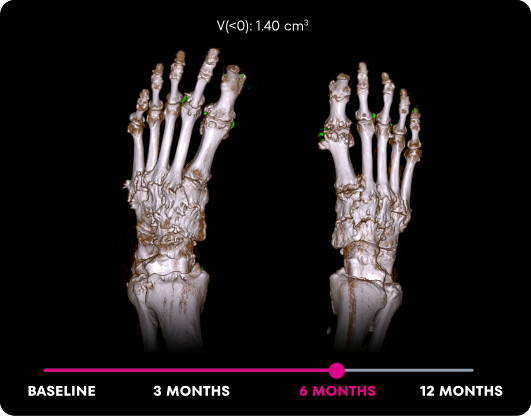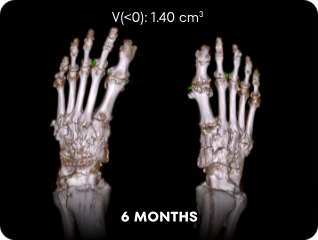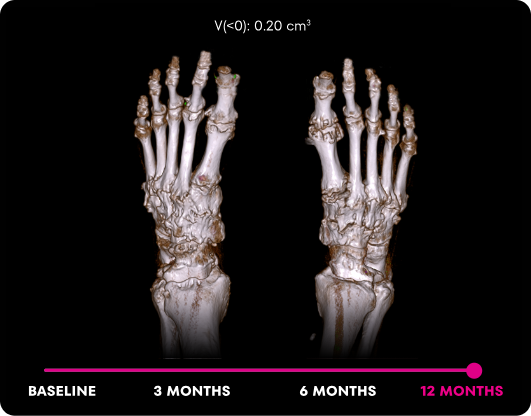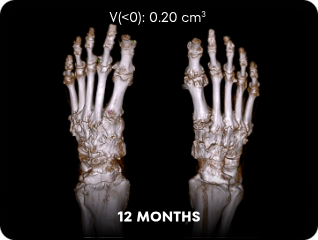IMPORTANT SAFETY INFORMATION
WARNING: ANAPHYLAXIS AND INFUSION REACTIONS, G6PD DEFICIENCY ASSOCIATED HEMOLYSIS AND METHEMOGLOBINEMIA
- Anaphylaxis and infusion reactions have been reported to occur during and after administration of KRYSTEXXA.
- Anaphylaxis may occur with any infusion, including a first infusion, and generally manifests within 2 hours of the infusion. Delayed hypersensitivity reactions have also been reported.
- KRYSTEXXA should be administered in healthcare settings and by healthcare providers prepared to manage anaphylaxis and infusion reactions.
- Premedicate with antihistamines and corticosteroids and closely monitor for anaphylaxis for an appropriate period after administration of KRYSTEXXA.
- Monitor serum uric acid levels prior to each infusion and discontinue treatment if levels increase to above 6 mg/dL, particularly when 2 consecutive levels above 6 mg/dL are observed.
- Screen patients at risk for glucose-6-phosphate dehydrogenase (G6PD) deficiency prior to starting KRYSTEXXA. Hemolysis and methemoglobinemia have been reported with KRYSTEXXA in patients with G6PD deficiency. KRYSTEXXA is contraindicated in patients with G6PD deficiency.
CONTRAINDICATIONS:
- In patients with G6PD deficiency.
- In patients with history of serious hypersensitivity reactions, including anaphylaxis, to KRYSTEXXA or any of its components.
WARNINGS AND PRECAUTIONS
Gout Flares: An increase in gout flares is frequently observed upon initiation of anti-hyperuricemic therapy, including KRYSTEXXA. Gout flare prophylaxis with a non-steroidal anti-inflammatory drug (NSAID) or colchicine is recommended starting at least 1 week before initiation of KRYSTEXXA therapy and lasting at least 6 months, unless medically contraindicated or not tolerated.
Congestive Heart Failure: KRYSTEXXA has not been formally studied in patients with congestive heart failure, but some patients in the pre-marketing placebo-controlled clinical trials experienced exacerbation. Exercise caution in patients who have congestive heart failure and monitor patients closely following infusion.
ADVERSE REACTIONS
The most commonly reported adverse reactions (≥5%) are:
KRYSTEXXA co-administration with methotrexate trial:
KRYSTEXXA with methotrexate: gout flares, arthralgia, COVID-19, nausea, and fatigue; KRYSTEXXA alone: gout flares, arthralgia, COVID-19, nausea, fatigue, infusion reaction, pain in extremity, hypertension, and vomiting.
KRYSTEXXA pre-marketing placebo-controlled trials:
gout flares, infusion reactions, nausea, contusion or ecchymosis, nasopharyngitis, constipation, chest pain, anaphylaxis, and vomiting.
INDICATION
KRYSTEXXA® (pegloticase) is indicated for the treatment of chronic gout in adult patients who have failed to normalize serum uric acid and whose signs and symptoms are inadequately controlled with xanthine oxidase inhibitors at the maximum medically appropriate dose or for whom these drugs are contraindicated.
Limitations of Use: KRYSTEXXA is not recommended for the treatment of asymptomatic hyperuricemia.
Please see Full Prescribing Information, including Boxed Warning.


